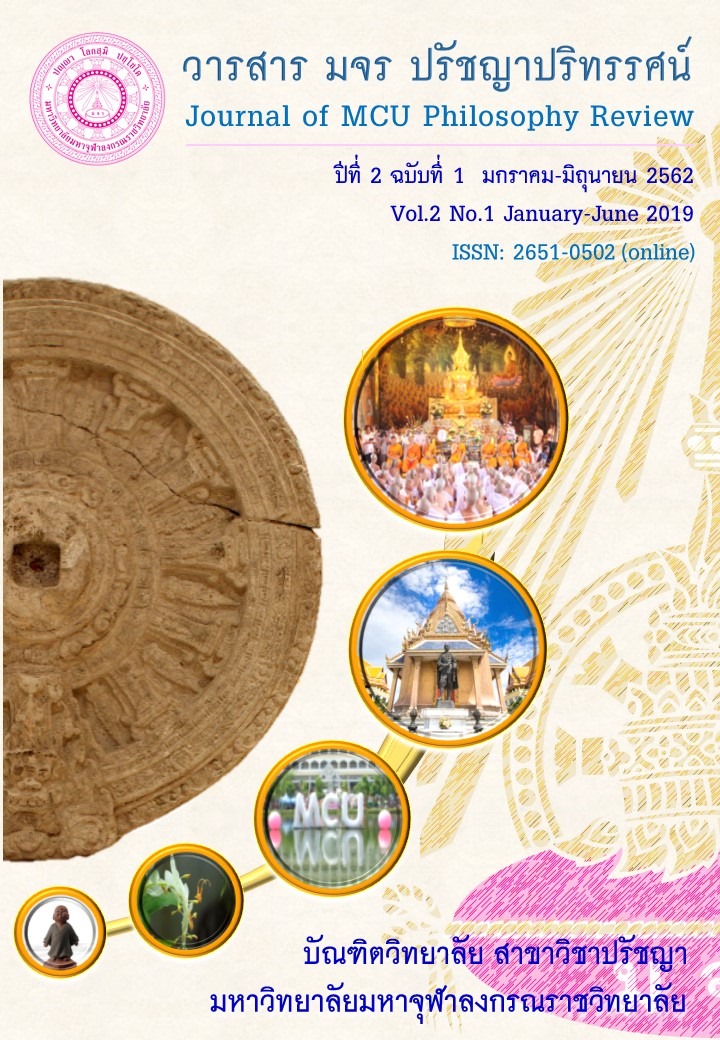Gender Inequality: A Critical Study in Ethical Viewpoint
Main Article Content
Abstract
In this article, an attempt was purposely made to study the ethical problem of gender inequality detected in Buddhism. In this work, it appeared that, on the one hand, some groups are of the view that Buddhist attitude towards women's status concerning the time when the Buddha did not allow ordination to Bhikhshuni obviously shows the inequality. On the other hand, some groups are of the view that Buddhism has no place for inequality but honor. In this article, it was made to critically prove that both debates are not centered on religious ethical point of view; it is only centered on social ethical dimension. In proving this debate, this article was found that such debate as to whether or not the ordination should be given to Bhikhshuni, should take only religious ethics by virtue of human nature into account, not gender.
Article Details
บทความที่ได้รับการตีพิมพ์เป็นลิขสิทธิ์ของวารสาร มจร ปรัชญาปริทรรศน์
ข้อความในบทความที่ได้รับการตีพิมพ์ในวารสาร ถือเป็นความรับผิดชอบของผู้เขียนบทความ และข้อคิดเห็นนั้นไม่ถือว่าเป็นทัศนะและความรับผิดชอบของกองบรรณาธิการวารสาร มจร ปรัชญาปริทรรศน์
References
ฉลาดชาย รมิตานนท์. (2555). เล่าเรื่องเบื้องต้น สตรีศึกษา สตรีนิยม. เชียงใหม่ : วนิดาการพิมพ์.
ปรีชา ช้างขวัญยืน. (2557). สตรีในคัมภีร์ตะวันออก. พิมพ์ครั้งที่ 2. กรุงเทพมหานคร : โครงการตำราคณะอักษรศาสตร์ จุฬาลงกรณ์มหาวิทยาลัย.
วิโรจ นาคชาตรี. (2550). พุทธปรัชญาเถรวาท. พิมพ์ครั้งที่ 3. กรุงเทพมหานคร : สำนักพิมพ์มหาวิทยาลัยรามคำแหง.
สมภาร พรมทา. (2542). พุทธปรัชญา มนุษย์ สังคมและปัญหาจริยธรรม. กรุงเทพมหานคร : โครงการตำราคณะอักษรศาสตร์ จุฬาลงกรณ์มหาวิทยาลัย.
สมภาร พรมทา. (2559). พุทธปรัชญาในอภิธรรมปิฎก. จัดพิมพ์เนื่องในโอกาสเกษียณอายุราชการของศาสตราจารย์ ดร.สมภาร พรมทา.
พระมหาพรชัย สิริวโร. (2556). "กระบวนการสร้างความสุขให้กับชีวิต", สาวิกา, ฉบับที่ 92 (กรกฎาคม-กันยายน 2556): 6.


